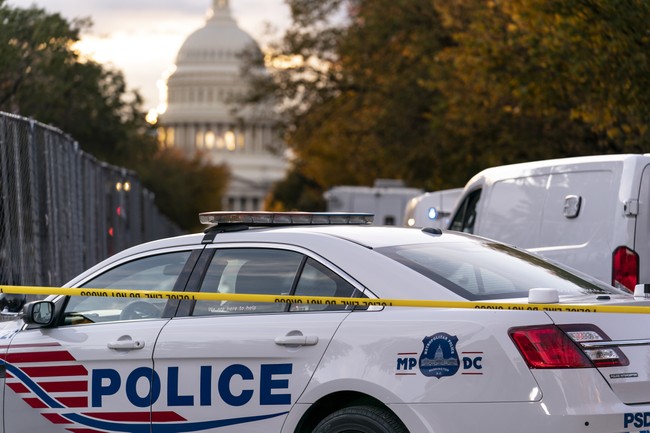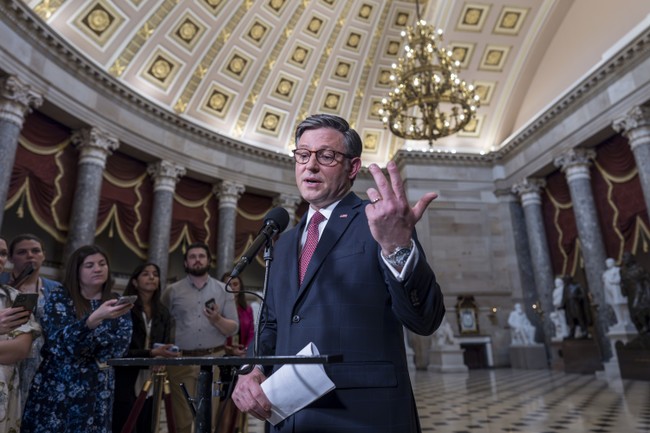
This article was originally published on Bearing Arms. You can read the original article HERE

While USA Today tries to blame lawful gun owners for the rise in juveniles charged with murder (a bogus assertion that my colleague Tom Knighton took apart on Friday), The Atlantic recently took an in-depth look at the staggering increase in juveniles committing carjackings in Washington, D.C. and the Maryland suburbs, and a lack of gun control or an increase in legal gun ownership never came up once among the police officers, politicians, and crime victims they spoke with.
Advertisement
Instead, those stakeholders say a number of other factors led to the shocking rise in carjackings over the past few years: from 152 reported carjackings in D.C. in 2020 to 958 in 2023, and fewer than 100 reported carjackings in neighboring Prince George's County in 2019 to more than 500 last year.
This startling increase stemmed from a complex and still somewhat mysterious set of factors, but prominent among them, at least according to cops in the Carjacking Interdiction Unit, were protracted school closings, which fueled truancy and juvenile crime; police reforms that restricted the ability to fight crime effectively; and a new hesitancy among some officers about risking their career or their life in a political atmosphere (“Defund the police!”) that they felt villainized them more than the criminals.
Interestingly, Virginia's counties in the D.C. suburbs haven't seen anywhere close to that same increase, which is another bit of evidence that gun control (or a lack thereof) isn't to blame for the increase. Of D.C., Maryland, and Virginia, it's the last that has the most relaxed gun laws, but violent crime (including carjackings) is far lower in places like Arlington and Fairfax County compared to the District and Prince George's County. According to one police chief interviewed by The Atlantic, that may be because Virginia hasn't gone nearly as far as their neighbors in instituting criminal justice "reforms" that, all too often, are quickly returning young offenders to the streets.
Advertisement
[Former D.C. Police Chief Peter] Newsham is now the police chief for nearby Prince William County, Virginia, which has been averaging only a dozen or so carjackings a year. He says that if you were to place a red dot on a map everywhere across the region where a serious crime has occurred, most of those dots would be concentrated in D.C. and some of its adjoining Maryland neighborhoods. “As soon as you go into Virginia, there are very few red dots,” he says. “How do you explain that?”
He answered his own question: “It’s the lack of consequences in D.C. If you want to stop violent crime, you have to separate violent criminals from society. They’re just not doing that. We’re so concerned about the freedom of the violent offender that we’re putting everyone else in jeopardy.” (The poverty rate is also lower in Prince William County than in Washington.) Newsham says criminals in D.C. have told him they know not to commit a crime in Northern Virginia because they know punishment there “is going to be swift and certain.”
Retired Prince George's Police Major Sunny Mrotek told The Atlantic a similar story. Before his retirement, Mrotek headed up the county's Carjacking Interdiction Unit, which was created in 2021, and said he quickly discovered that the unit was "arresting the same kids again and again; more than a few wore GPS monitors on their ankle from previous arrests".
Advertisement
Mrotek, who retired this year, found himself frustrated by what he viewed as the “coddling mindset” of the juvenile justice system. To better understand what was happening to kids as they went through the system, he began tracking the aftermath of every arrest his team made. He was stunned by what he found: dozens of cases in which teens were arrested for armed carjacking, pleaded to this or to lesser charges, and were released on probation. Kids found to be involved in carjackings rarely seemed to get any significant time in juvenile detention. He compiled a list of what he called the “top offenders”—teens on probation for carjacking who went on to be charged with additional carjackings. Suddenly, explaining the county’s carjacking problem seemed simple: If there were no meaningful consequences for committing a crime, kids would just keep committing it. “This isn’t brain surgery,” Mrotek told me. Kids would say to detectives, “ ‘I’m a juvenile—I’ll be home later today.’ ” Christina Henderson, a member of the D.C. city council, told me she would hear about offenders committing multiple carjackings. “That tells me that when he didn’t get caught after the first one, there was a feeling of invincibility—Nothing is going to happen to me; let me keep going.”
If USA Today had bothered to do a deep dive into the juveniles who've been arrested and charged with murder this year, I suspect they'd find a disproportionate number of them also have previous involvement in the criminal justice system. That's certainly the case with a 17-year-old recently charged with the murder of a 26-year-old man in Columbia, Maryland, who was wearing an ankle monitor and under supervised probation when he was arrested earlier this week. Despite being watched over by the Department of Juvenile Services, the teen was busted with a loaded handgun at Howard High School, where he was a student, when he was taken into custody.
Advertisement
Maryland's extensive gun control regime, including licensing mandates for handgun owners, a ban on so-called assault weapons and large capacity magazines, and "universal" background checks failed to stop the teen from illegally acquiring a gun. The fact that he'd previously been treated with kid gloves by the juvenile justice system, on the other hand, may have led him to have that same feeling of invincibility that Mrotek frequently encountered among juvenile carjacking suspects.
Gun control in D.C. and Maryland failed to stop the rise in carjackings over the past couple of years, and no one The Atlantic spoke with credits gun control for the declines that have been reported in those jurisdictions over the past ten months. Reported carjackings are down by about 50% in D.C. and 25% in Prince George's County, which is good news, and police, prosecutors, and politicians credit those carjacking task forces as well as increase in prosecutions for offenders.
D.C and Maryland still have a long way to go before the right to keep and bear arms is sufficiently recognized, but the evidence of the ineffectiveness of their gun control policies is plain to see. To make our communities safer, we have to target those individuals who are actually committing these crimes instead of violating the rights of those citizens trying to protect themselves and their families.
Advertisement
This article was originally published by Bearing Arms. We only curate news from sources that align with the core values of our intended conservative audience. If you like the news you read here we encourage you to utilize the original sources for even more great news and opinions you can trust!










Comments